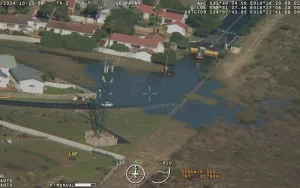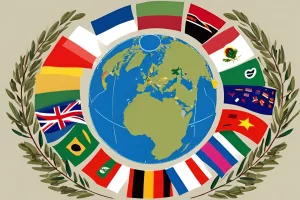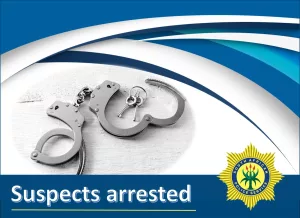The Damara Trail is a brandnew hiking experience in South Africa’s De Mond Nature Reserve, designed for everyone to enjoy at their own pace. Over two days, hikers can explore breathtaking landscapes, learn about local nature and culture, and connect deeply with the environment. The trail combines gentle walks with educational signs, revealing fascinating stories about the area. As you wander along, you can breathe in the fresh air and feel the peace of nature, making it a perfect escape from the rush of everyday life. Bookings open on October 4, inviting adventurers to embrace this special journey!
Table Mountain is a breathtaking natural wonder in Cape Town, known for its flat top and rich history. The Table Mountain Aerial Cableway, which has been taking visitors to the summit since 1929, offers stunning views of the city and the unique plants that grow there. It has welcomed many famous visitors, showing how important it is to both locals and tourists. As it approaches its 95th anniversary, the cableway celebrates its role in connecting people to nature and fostering a sense of wonder for all who ride it.
Capture the magic of your safari adventure with just your smartphone! To take amazing photos, use the soft sunlight during the early morning or late afternoon for vibrant colors. Get up close to the animals—avoid digital zoom for clearer shots, and steady your phone on solid surfaces to avoid blurriness. Remember to think about composition, like placing your subjects following the rule of thirds, to create exciting images. With these easy tips, you can turn your snapshots into stunning memories of wildlife in their natural world!
The Innovative Sanitation Technology pilot project in Cape Town is a groundbreaking effort to improve toilets in five informal settlements. Launched on October 1, 2024, this initiative uses ecofriendly, nonsewered toilets to boost health and dignity for residents. With strong community involvement and support from organizations like the Bill & Melinda Gates Foundation, the project aims to tackle the sanitation challenges faced by these underserved areas. By embracing advanced technology and sustainable practices, Cape Town is paving the way for a brighter, cleaner future for its communities. This project shows how smart solutions can create hope and change lives.
The Irish Tech Challenge South Africa is an exciting event in Dublin that brings together South African and Irish entrepreneurs. It focuses on helping new businesses that aim to achieve the United Nations’ Sustainable Development Goals. With the presence of Deputy President Mashatile, the event buzzes with energy and hope, celebrating innovation and teamwork. This gathering showcases the bright ideas of young creators and highlights the strong partnership between Ireland and South Africa, paving the way for a better future through technology and collaboration.
The City’s Strategic Water Maintenance Plan is set to take place from September 30 to October 4, 2024, focusing on making sure our water supply is safe and reliable. During this time, various repairs and upgrades will happen across the city, including zeropressure tests that might cause some changes in water pressure for residents. Special care will be taken to clean and maintain the Glen Garry Reservoir, ensuring the water stays clean and safe for everyone. As these tasks unfold, it’s important for residents to prepare by storing water and being aware of possible temporary disruptions. This plan is all about protecting our city’s lifeblood: clean water for all!
The Grand Chess Tournament at the Parow Civic Centre was an exciting celebration of skill and strategy on September 28, 2024. With players of all ages gathering from various backgrounds, this event showcased how chess has become a popular and unifying force in the community. Librarian Daniel Arendse, who believes chess changed his life, led the charge to turn libraries into lively spaces for chess lovers. The tournament wasn’t just about winning; it was a joyful reminder of teamwork, learning, and the power of community. As applause filled the air, it was clear that this game is more than just a board—it’s a path to connection and growth for everyone involved.
Winter in Cape Town was tough in 20232024, with record rainfall and strong winds affecting over 167,000 people and damaging many homes. As the chill fades, the city’s Disaster Risk Management Centre stays alert, using new technology to help respond to future storms. Numerous organizations stepped up to provide aid, serving hot meals and distributing blankets to those in need. This challenging season taught Cape Town valuable lessons about community strength and the importance of being prepared for whatever nature throws its way. As the city looks ahead, its spirit of resilience shines bright, ready to face new challenges together.
Home Affairs in South Africa is now open on Saturdays from 8 AM to 1 PM until October 12, 2024, to help students get their IDs for the important National Senior Certificate exams starting on October 21. This means students can get the documents they need without rushing at the last minute. The government is also using technology to make ID applications easier and faster, helping to clear a backlog of requests. This new schedule shows a strong commitment to supporting students and modernizing public services for everyone.
Cape Road in Gqeberha is set to be renamed Siya Kolisi Road to celebrate the inspiring legacy of the Springbok captain. Kolisi, the first black captain of the Springboks, symbolizes unity, resilience, and hope for many South Africans. This change is more than just a new name; it shows the community’s pride in local heroes and highlights the values of inclusivity and togetherness that Kolisi represents. The proposal sparks a deeper conversation about the stories we honor in our public spaces, making it a meaningful tribute to a remarkable leader.
Arbor Month in Cape Town is a joyful celebration of trees and the environment, where the community comes together to plant beautiful indigenous trees like the Wild Olive. On September 25, 2024, city leaders planted two Wild Olives at the Bellville Municipal building, showing their commitment to a greener, healthier city. This event not only beautified the area but also strengthened community bonds and reminded everyone of the importance of caring for nature. With every tree planted, Cape Town invests in a brighter, more sustainable future for generations to come.
On September 20, 2024, Andile Nyoka faced the Gqeberha High Court for the brutal murder of Sergeant Mario Nell in Motherwell. Nyoka, who had attacked Nell during a court session on May 3, 2023, received a life sentence plus 57 years for his shocking crime. The courtroom buzzed with tension as the community demanded justice for the fallen officer, highlighting the dangers police face daily. This case not only marked a moment of accountability but also reminded everyone of the importance of law and order in society. Nyoka’s harsh punishment sent a strong message: such violence will not be tolerated.
In his speech at the 79th UN General Assembly, President Cyril Ramaphosa shared South Africa’s inspiring journey from apartheid to democracy, highlighting the importance of global peace and cooperation. He emphasized the need for fairness in world governance, urging nations to work together against current conflicts, like the situation in Gaza. Ramaphosa also addressed the challenges of climate change and pandemics, calling for united action to help vulnerable countries. He finished with a powerful reminder that building a fair and just world takes commitment and teamwork from all nations.
Premier Alan Winde played a key role in Climate Week, representing Africa as cochair of the Under 2 Coalition in New York. His focus is on working together to fight climate change and helping communities adapt to its impacts, all while sticking to the Western Cape’s Vision 2050 for a better future. At the same time, Cape Town is hosting its own Climate Week, echoing the global discussions and highlighting local efforts to tackle climate issues. Both events show how important it is to work together, bringing global and local voices together to create a sustainable and fair world for everyone.
Operation Shanela was a national initiative by the South African Police Service that resulted in the arrest of over 13,000 criminals in just one week, dealing a significant blow to violent crimes such as murder, rape, and illegal firearm ownership, as well as nonviolent offenses like drug possession and illegal liquor sales. The operation demonstrated the police service’s dedication to safeguarding communities from criminal activities, with significant recoveries and confiscations adding to their successes. The mission to maintain law and order continues, ensuring the safety and security of all individuals in South Africa.
The Philippi Police Academy is in big trouble, dealing with awful conditions like leaking toilets and moldy roofs. Trainees struggle without basic things like hot water and enough computers, leaving them unprepared to protect the community. Over R114 million has been spent there since 2018, but no one has checked the finances in six years, raising serious concerns about where the money went. This mess highlights a lack of leadership and accountability, making it clear that real change is needed to restore hope for these future police officers.
















